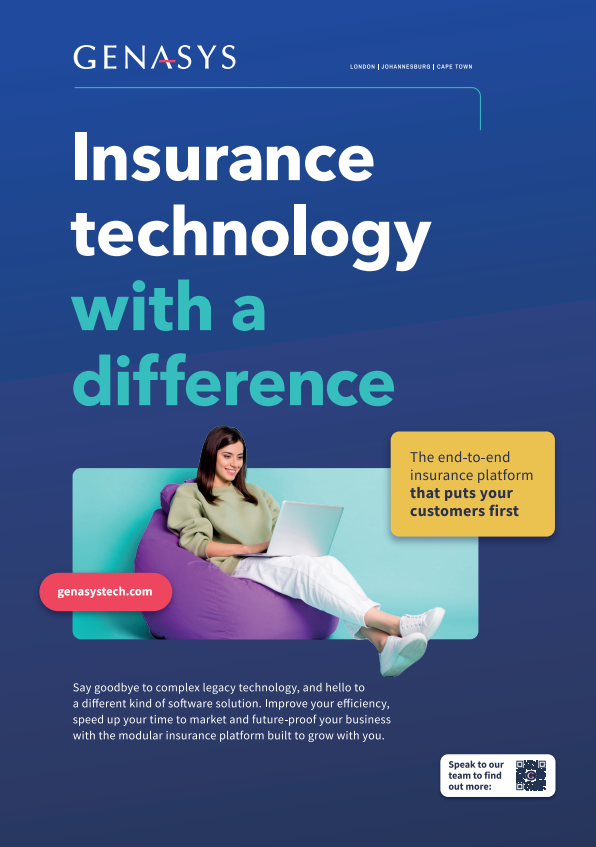Alan Fritz, Executive: Strategy & Planning at Medshield Medical Scheme
The South African government started discussing the NHI (National Health Insurance) in 2003. After several poor attempts at starting, most people thought that a fully funded first-world healthcare system could never become a reality. Furthermore, the role of medical schemes was not clear since no policy direction exists in this regard from the Department of Health. Many medical schemes have since come out supporting the NHI, realising there is room for collaboration and more fundamental co-existence of the two healthcare systems.

The NHI is a healthcare financing system that aims to pool funds to provide universal access to quality, affordable primary healthcare services for all South Africans and long-term residents. Under Section 27 of the Constitution, the purpose of NHI is to:
- achieve universal access to quality healthcare services in South Africa;
- establish a National Health Insurance Fund (NHIF) and define its powers, functions, and governance
- structures; and
- provide a framework for the fund to strategically purchase healthcare services on users’ behalf.
Attitudes, opinions and research
PWC recently launched a study on NHI, where 50% of the survey participants believe that NHI will guarantee or partially guarantee equal access to healthcare, whilst 100% of respondents support the intent of NHI and the model of universal health coverage. Most people felt they needed more clarity on the scope and range of benefits, governance structures, the risk of corruption, healthcare worker capacity, and the impact on the private sector.
Others expressed an interest in learning more about the NHI implementation plan, governance, and funding. According to participant responses, access to funding, effective management, meaningful public-private partnerships (PPPs), transparency and communication between key players will be critical success factors for the NHI.
Medical schemes and pharmaceutical companies are especially concerned about their roles in NHI. Of particular concern is Section 33 of the NHI Bill, which states that Schemes may only provide cover that constitutes complementary or top-up cover that does not overlap with the personal health care service benefits purchased by the NHI fund on behalf of users. The bill, therefore, does make provision for private medical schemes to provide gap cover, ultimately meaning that these schemes will cease to operate and their members would be forced to use the NHI.
Over 52% of schemes have begun engaging with the National Department of Health and developed some NHI plans and strategies. In contrast, 47% of organisations do not have a plan for NHI, and 26% of those do not consider it a priority. The industry is increasingly concerned about a lack of clarity regarding the various private sector players’ roles and responsibilities.
Many expressed a willingness to work across sectors to form successful partnerships. It would necessitate open dialogue between the public and private sectors, as well as careful consideration of all aspects of fund implementation, including legal, governance, and policy frameworks, as well as sociopolitical factors like public sector capacity and the financial implications of partnerships. These collaborations will most likely be managed per global and local best practices in healthcare purchasing, provisioning, procuring, and management. Best practices will improve access, equity, quality, and innovation while serving the currently uninsured population and levelling the playing field for access to high-quality healthcare.

Insurance technology with a difference.
The end-to-end insurance platform that puts your customers first.
Where do medical schemes fit?
The fears about medical schemes ceasing to exist in an NHI world are misplaced. The NHI will not bring about the end of private healthcare in South Africa. Instead, medical schemes will adopt new models to co-exist with the NHI by contributing to different minimum benefit packages. Suppose one looks at Canada, the UK, Australia and Europe – their national health systems co-exist with private health and are complementary in providing access to quality healthcare. The NHI framework places the state as a central purchaser of primary care and funds it through a single source of some taxation model. Private health in South Africa has shown its capability, especially during the pandemic. In its quest to implement a national health framework, the government can rely on the private sector for systems, healthcare professionals, management and administration skills to implement universal healthcare at a primary level with family practitioners as gatekeepers.
The NHI would suffer if medical schemes were limited in their role. Simply put, there aren’t enough resources to meet the needs of all South Africans. Through the NHI, the state can rely on the private sector for different benefits packages, like optometry, pharmaceutical, preventative screening, and other supportive infrastructure to deliver services. It is certainly not the end of private health, and the model of co-existence is a debate where Medshield is making its voice count. Our position is to contribute to developing the NHI minimum benefit package. Most of all, attempting to prevent those who can afford it from using their medical scheme coverage and forcing them into the NHI system would increase the NHI’s burden, depleting resources intended for healthcare. The structural change is essential and will help to strengthen and improve the healthcare system for all South Africans. Medical schemes should not be sidelined in this but should instead assist in building it and making it sustainable, with the ultimate goal of strengthening the public and private healthcare systems for all.
NHI’s success depends on funding, governance, partnerships, and dialogue. Collaboration necessitates communication and transparency. It is critical to ensure that sub-sectors and organisations are adequately prepared for the NHI and have incorporated the model into their organisational strategies. It is a massive, complex, and multi-decade initiative requiring significant debate and effort to make it workable.
Universal healthcare access is morally and ethically correct, but these initiatives are most successful and sustainable when they are collaboratively planned, resourced, and show resilience in partnering.

